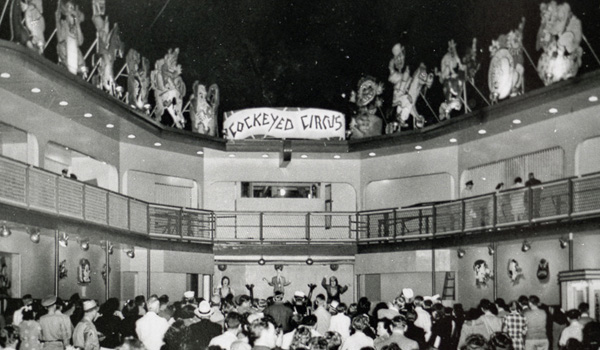Reviews, Interviews, and MiscellanyOn The Re-echoes“In The Re-echoes, Magnus weaves a multilayered call-and-response that slingshots from reproduction to history to evolution to etymology. What emerges is a hymn to all imperfect repetitions, a contrapunctus in honor of the ‘generative combinatorial’ that makes us at once very like each other, and totally unique. As in ‘a game of telephone,’ the point is not to clone, but to decay, fracture, to make the message ‘re-known, re-owned.’ Strange loops abound, allusive and improbable, abundant and anomalous. As it ‘avers the converse / conversation,’ Magnus’s fractal play of sound and sense delights, gives pause, and delights again.”—Maureen Thorson “Elemental utterance guttural” Alyse Knorr on The Re-echoes Chris Mason Review and Interview Rain Taxi interview : Where the Blur Occurs
On Idylls for a Bare StageThe blog A Shared Imagining focuses on events, performances, and updates relevant to the book Idylls for a Bare Stage, the theory and technique of the ancient form of the Idyll, and seminars on “The Art of the Poetic Monologue.” Most expansive from the date of the book’s publication through 2013, but relevant events and announcement continue to be updated there. The following are reviews of Murder on the Bare Stage – an Idylls spin-off and theatrical collaboration created with actor Stephen Mead – during the “Must-See”- rated, 5 Star, “Best of the Fringe”-rated run at CapFringe 2013 5 Star Review from DC Metro Theater Arts Interview with Magus Magnus and Stephen Mead at DC Theatre Scene’s CapFringe Tent Talks On Heraclitean Pride“Reading Magnus’s Heraclitean Pride, one is reminded of Fragment 115: ‘To the soul belongs a Logos that increases itself.’ Magnus’s approach increases the logos, and through that increase fashions perspectives from which to engage Heraclitus’ philosophy. His is not a traditional interpretation but a journey that is simultaneously a piercing through. In that respect, Magnus’s account truly combines two meanings of ‘traversing’ to fashion a standpoint of plenitude. I believe his success in thus traversing stems from a powerful and daring insight about Heraclitus: ‘Previous analyses and impact don’t constitute its history, it’s not over.’ For Magnus, the philosophy of Heraclitus is not over. Instead, he relates to Heraclitus in the moment when Heraclitus touches Magnus’s own Logos and thus Magnus overcomes the danger against which Heraclitus warns in Fragment 72, for Magnus’s account is never separated from that with which he is most in contact. This work is essential reading for serious inquiry into the great Sage from Ephesus.”—Anne Ashbaugh
On Verb Sap“Word to the wise: read this love letter to what language can do for you. M. Magnus’ Verb Sap taps the very blood of language–the textures here get at the many-fingered roots, the ‘crossweave fabric’ of rhizomatic namings that thrust ever outward, always ‘by way of a word’ here, the ‘Elfic D’oracle’ signifies how a ‘single word can change your life'” – Lee Ann Brown “Reminiscent of 20th Century Russian absurdist poetry, with its wild wordplay and philosophic underpinning, Verb Sap’s 13th hour ruminations, break-of-day transpositions, and in-your-face midday tagging, make it irresistible work-a-day sneak reading. This book has a skewed rational or disorderly relationship to American Daily Life. It is itself a life-form – for the gobbling. Me, I broke it down by way of post-industrial nucleotides. To great effect.” – Rodrigo Toscano “Verb Sap is smart, funny, and absorbing – makes you want to move around, read it out, a strange kind of aural knowledge. Magnus’ writing calls up the familiar, even the absurd, and twists every observation or overheard fragments into a play of sustained revelations.” – Thalia Field Christophe Casamassima Interview Chris Vitello on Verb Sap aloud
& More & Whatnot / Sends & Odds & WhatnotMagnus review of Justin Limoli’s Bloodletting in Minor Scales [A Canvas in Arms.] Magnus review of Chris Mason’s Hum Who Hiccup Magnus and Chris Mason on CAConrad’s Jupiter 88 (includes Mason’s Magnus dream poem) Magnus blurb of the late Chris Toll’s The Disinformation Phase
& poetic divination:
|  |